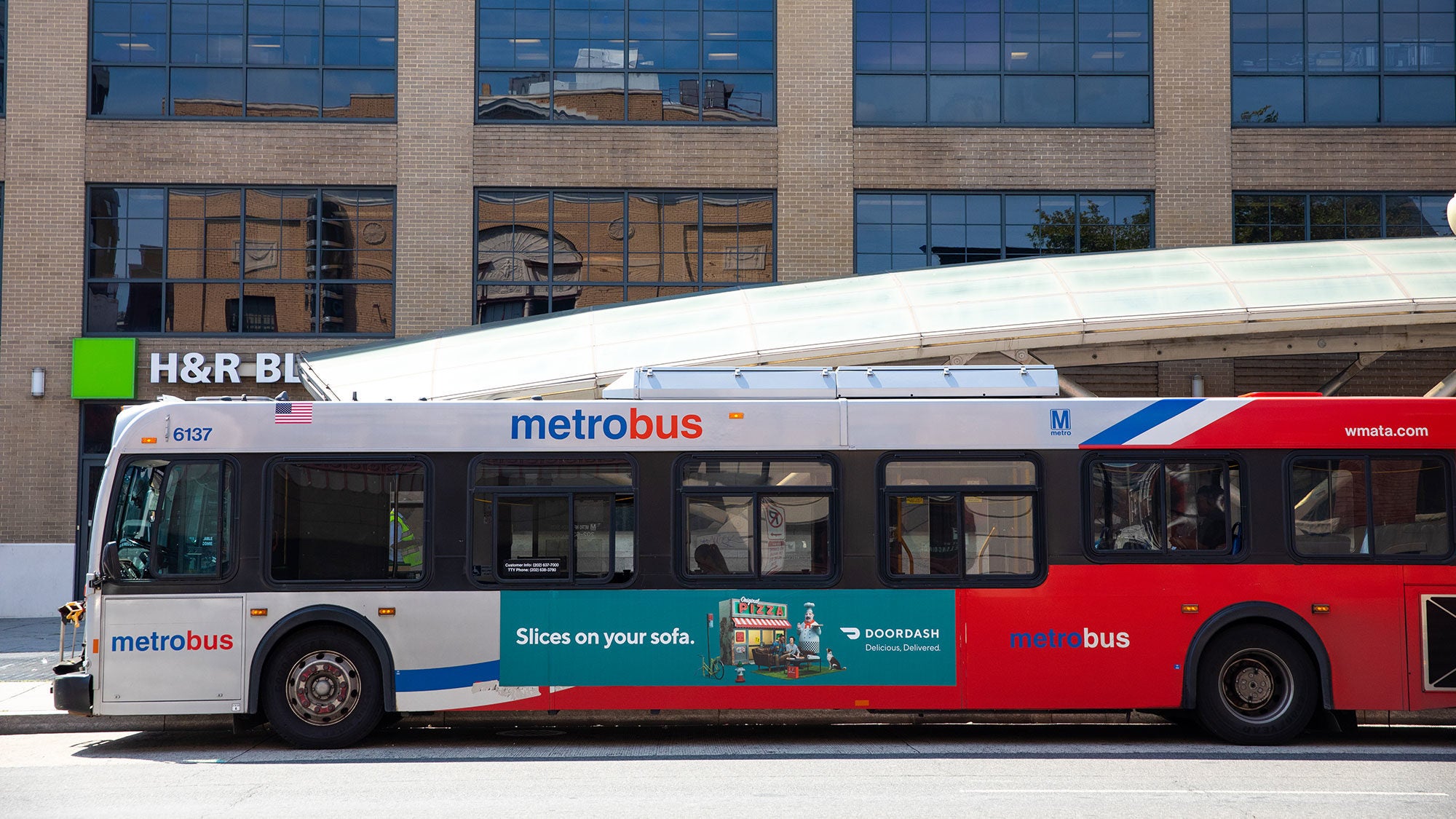Mobilizing Support
Tseu and other members of the Georgetown community provided testimony during a Feb. 26 WMATA public hearing and commented on behalf of the university.
The following day, the Office of Community Engagement alerted students, staff and faculty about the proposed changes by email.
The university then coordinated with the Georgetown University Student Association (GUSA), GradGov and the Kalmanowitz Initiative for Labor and the Working Poor to amplify the message.
Taking Care of Everyone
Darcy Palder (C’21), a member of GUSA’s Federal Relations and DC committee, was among the students who helped circulate petitions and educated peers about the proposed bus route changes.
“We made sure to remind people that cutting bus lines wasn’t just a logistical inconvenience, but something that would have hard consequences for those who depend on affordable, quick transportation to get to work and also for the world to have access to Georgetown,” she explains. “If we learned anything from this issue, it’s that we are at our best when we take care of everyone in the Georgetown community.”
A shift in public sentiment against the bus proposals surfaced in the final week of the public comment period, according to the WMATA budget proposal. Of the 49 proposed changes to Metrobus service, 41 saw a decrease in support between Feb. 25 and March 9 – with the most pronounced shift surrounding the G2 proposal.
On Feb. 25, a total of 255 responses had been collected with 50% of respondents against changing the G2 stop, and by March 9, 1,210 responses had been collected with 83% against the proposal.
“This strong shift after a sizable sample of 255 completed responses is highly unusual – the change must have been caused by factors introduced to the political environment after the first week,” according to the WMATA budget proposal.
A Huge Difference
The WMATA budget, which will go into effect July 1, also includes:
- Reduced price for seven-day bus passes
- $1 bus/rail transfer discount
- Extended late-night rail services
- $2 rail flat fare on weekends
- Increased rail frequency on Sundays
“We are grateful to the Georgetown community for sharing feedback with WMATA about the initial proposal,” says Christopher Murphy, vice president of government relations and community engagement. “It made a huge difference and resulted in an important win for faculty, staff, students and visitors.”
